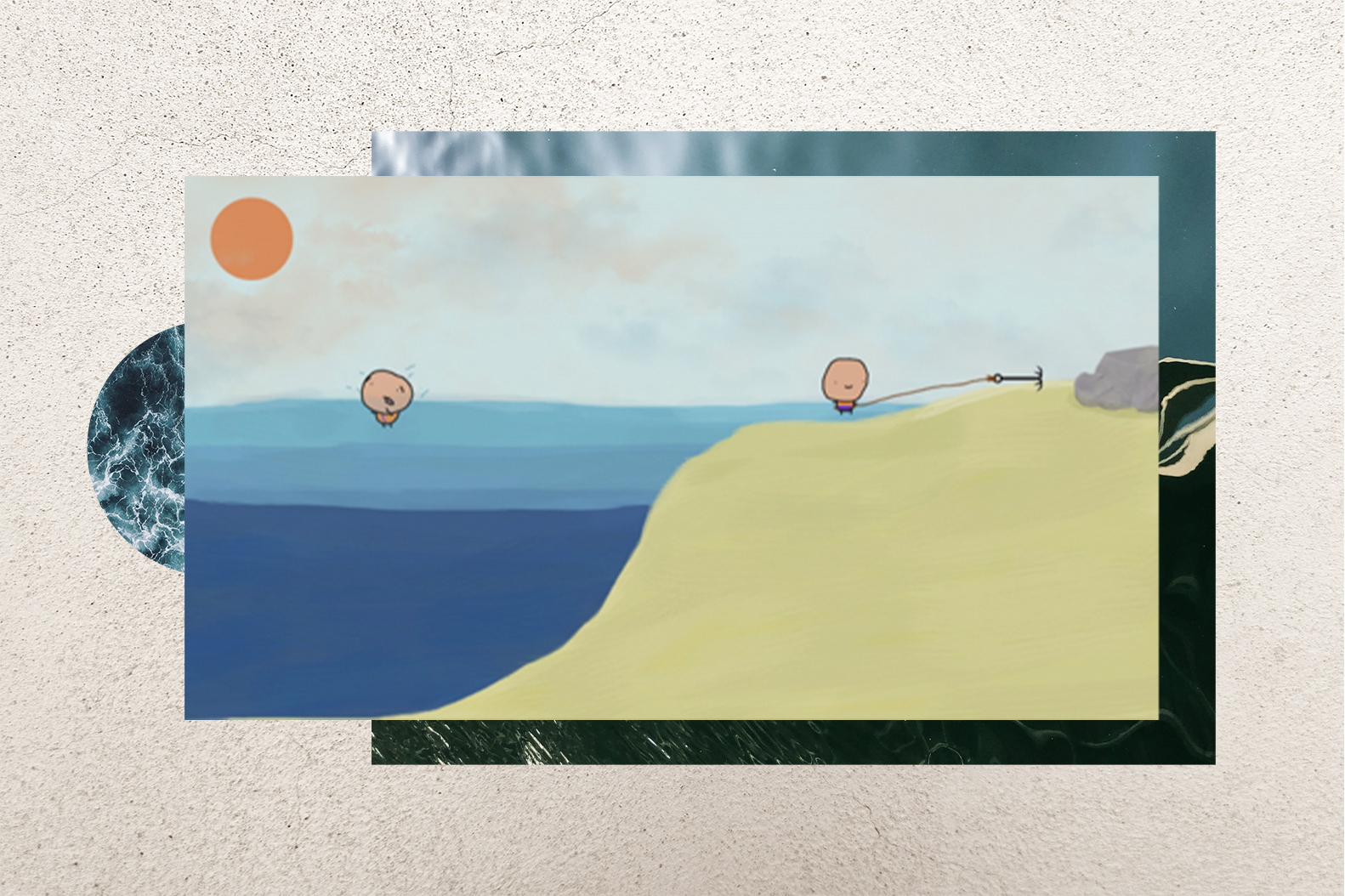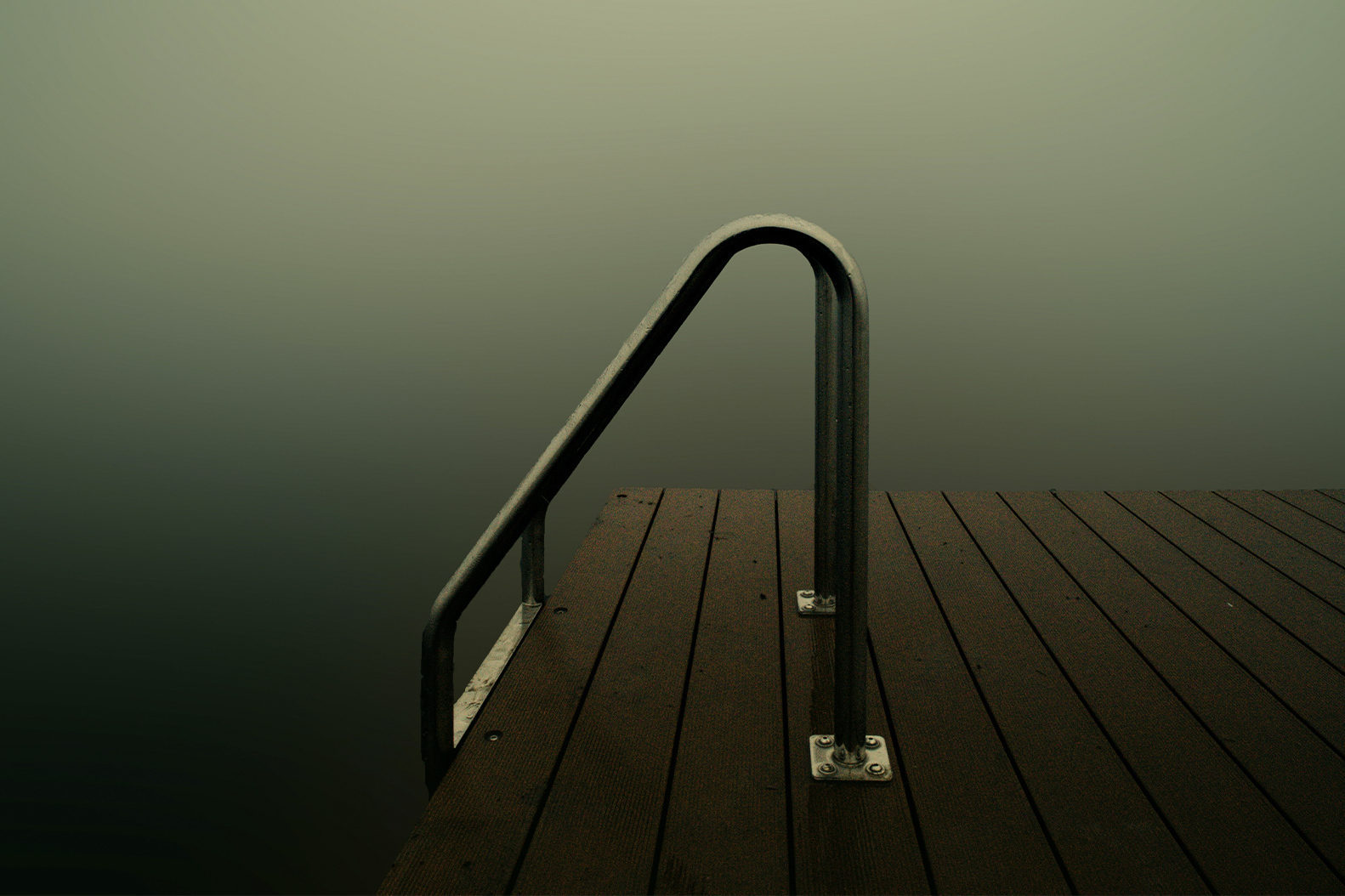For the past 10 or so years, I’ve been dealing with episodes of deep melancholy.
Thoughts of suicide came into mind from time to time, but I always dismissed them as a normal part of the human experience of sadness. These episodes were always broken up by windows of normality.
- There’s no way I could be depressed.
- Surely everyone feels this way from time to time.
- I’m normal.
- I don’t want to be seen as weak.
- My life is pretty good, what right do I have to be depressed?
Telling myself such things was how I got through those years. I learnt how to hide these feelings from all but the closest of friends.
I buried the problem and refused to deal with it, never really quite learning how to cope with the episodes of suicide when they came. I alienated and hurt many dear friends as a result of my dysfunction.
But hey, life still went on, so I carried on lying to myself that everything would be okay.
It didn’t stay okay. As I spiralled into yet another episode of melancholy, something changed. The feelings of despair refused to lift for months on end no matter how hard I tried.
When I got called up for military service, I thought the change in environment would help me get my mind off things. Who has time to be sad when you’re too physically exhausted to think?
That didn’t work too, and the sadness became a constant companion throughout my training.
I was a nominal Christian back then, not a Christian by any measure of the term. I had a cursory glance of the gospel once, and I would pray perhaps once or twice a year when I was feeling desperate.
But I could not tell you anything else about Christianity besides the fact that there was a God and there was a cross, and somehow that was important.
Nevertheless, a friend invited me along to church in the hopes that it would help me. With nothing left to lose, I decided to just give it a shot. It didn’t quite have the desired effect though.
I felt so guilty and undeserving while seated in church, a broken person who definitely did not fit in with everyone else there.
Every service was painful, difficult and an exercise in trying not to break down into a sobbing mess. My mind would constantly scream that no one could love me, not even God.
DEEPER INTO DESPAIR
So the melancholy gave way to terrible, terrible despair.
It was a yawning, all-consuming abyss inside me that pulled my very essence into it – a black hole from which I feared I would never emerge from.
I started feeling nauseated for no reason, and movement took an immense amount of effort. Even more worrying was how the negative emotions were no longer tied to negative thoughts, and I could no longer figure out why I felt upset, guilty or ashamed.
The idea of suicide became deeply entrenched in my head as an escape from this senseless pain.
Intrusive thoughts became a constant: “You’ve done nothing but make the life of everyone around you worse. You should die – that way they can be happy and you’d never be able to inflict yourself on anyone else.”
The plan was perfect. No one knew, no one would be able to find me, no one would be able to stop me.
Most days I desperately reached out to friends to cry out in confusion and tell them how much I wanted to be dead.
It eventually got to a point where my friends could no longer bear this immense pressure themselves. One of them called the cops for help.
“The police are looking for you,” said my dad as he stood outside my door. “They want to talk to you about you wanting to commit suicide”.
The police eventually decided to let me stay home and not ship me off to the psychiatric ward after an hour of questioning. One of my staff sergeants even sent me a message a few days later to encourage me.
My friend texted to apologise for calling the police, and that she thought that it was the right thing to do even if it meant our friendship would end as a result. I could tell how much emotional stress I had placed on her.
But what I really took away from that experience was this: my existence was not fair to my friends. So I retreated even further.
My parents tried to confront me about my struggles when we were on vacation. I ran away, forcing them to chase me around. They screamed for me to come back till they could no longer keep up.
I became absolutely certain that I would do it this time, and I wouldn’t tell anyone about it so no one could stop me.
I took the next flight back to Singapore to prepare my goodbyes, went into camp and prepared to kill myself once everyone in the office had left for the day.
The plan was perfect. No one knew, no one would be able to find me, no one would be able to stop me.
Finally, I would die and this pain would stop.
A MOMENT OF CLARITY
I know how ridiculous it may sound when I say this – I would have laughed it off as the delusions of a religious nutcase before as well. I certainly did not attribute it to God at that point in time.
But God knew. And God stopped me: a sudden stillness came over me and the endless buzzing of half-formed thoughts in my mind fell silent.
The window of clarity lasted for just a minute or so, but in that time, I managed to rush into my boss’s office to say that I needed emergency help.
I called someone to watch over me for the day to make sure I would not do anything stupid, and I headed home.
The moment of clarity saved my life. It was nothing short of God’s divine intervention.

The more I reflected on it, the more I could not avoid the fact that something supernatural had happened. The least I could do was to find out what that was.
I started trying to understand the Christian faith a lot more seriously. I joined some introductory lessons and eventually joined a community group.
I read the Bible and other books to try and understand more about Jesus. And boy, was there a lot I was mistaken about!
So here I stand a year later, finally accepting Christ into my life after years of rebellion.
Am I saying that Christianity has “cured” my depression? By no means!
I have to exert so much energy just to wrestle with my destructive thoughts. Even as a practising Christian now, the episodes of despair still hit hard.
But knowing Christ has helped me better understand my suffering. Christ has given me hope even when things look like they are falling apart.
AN ANCHOR FOR LIFE
Let’s talk about life using a little analogy.
Life is a lot like being in the ocean, right by the shoreline. Some of us are much closer to dry land, where the water just reaches to the ankles and we can stand comfortably. Others are a little further out, where the water just about reaches their neck.
And some unfortunate ones are so far away from the shore that the seabed is far away, and they need to tread water constantly just to stay afloat.
Imagine for a moment that the waves that come by are negative emotions. They come and go, and everyone experiences them.
Sometimes the waves are tiny – perhaps the disappointment one feels when a friend forgets your birthday. Sometimes the waves are gargantuan – the sort of grief that comes when someone passes on.

For those near the shore, the waves are usually nothing more than a minor inconvenience.
But for those already struggling to stay afloat, even tiny waves threaten to overwhelm them. Everyone is at risk of being pulled out to sea and drowned though, no one is spared from that danger.
To make sure we don’t get washed away with the next rainstorm, we throw out emotional anchors onto the beach.
These anchors are what keep us well when life starts to look terrible – they can be our friends, families, careers, aspirations, reputation, et cetera.
I would argue, however, that these anchors will eventually fail us when the monster wave hits – they can’t cling on to the loose sand forever.
What we need to have is a Solid Rock to anchor to, so that nothing can pull us away and drown us. So it’s even more important then, that those already stuck out far at sea without anchors find this Rock.
YOU HAVE EVERYTHING TO GAIN
“Everyone then who hears these words of mine and does them will be like a wise man who built his house on the rock. And the rain fell, and the floods came, and the winds blew and beat on that house, but it did not fall, because it had been founded on the rock.” (Matthew 7:24-25)
Listen to Jesus’ words in the gospel of Matthew. I believe with all my heart that Jesus is this rock. My experience with depression has convinced me of this.

Whether you suffer from a mental illness or not, there will be days when despair finds you. But I’ve found that understanding what emotionally anchors you is important, both in helping you navigate your despair and empathising with others.
If you aren’t Christian and have your doubts about this Jesus, why not take a little bit of time to find out more about Jesus’ claims and survey the evidence yourself?
If you are not convinced, I suppose you can just move on. But if you are, then you’d have found the Rock that will never fail. You have everything to gain.
This article was first published on Stories of Hope and is republished with permission.
- What was the saddest you’ve ever been?
- What got you to that point? How did you get past it?
- Know someone who’s struggling with depression? What is one practical way you or your circle of friends might be a beacon of encouragement to that person?









